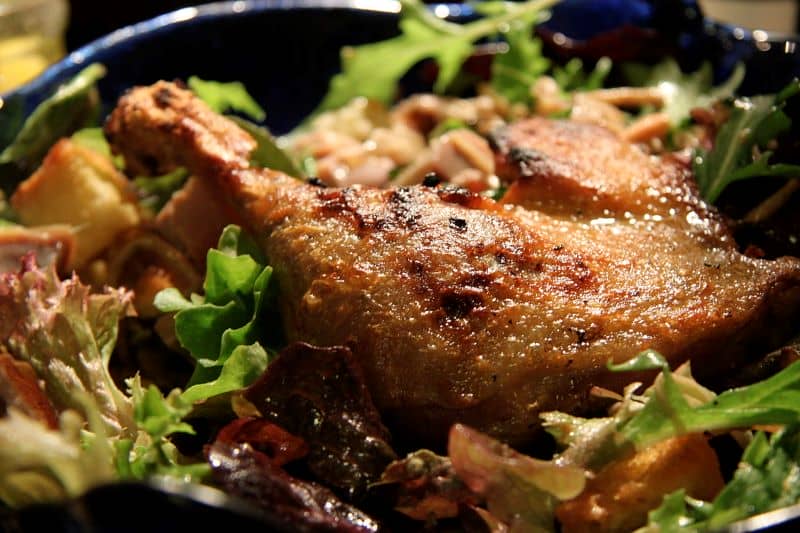The term “culture” is French, and France has a lot of it. The French word “culture” comes from the Latin word “colere,” which means to take care of the earth, to grow, cultivate, and nurture.
Somewhat reflective of that definition, the French people are extremely sensitive to any criticism of their country or government. Visitors, particularly Americans, often interpret their conduct toward foreigners as impolite.
Apart from the innate pride, the French place a high value on style and sophistication. They take pride in the fact that even their public spaces have a dignified air about them. For many people, Paris is synonymous with French culture because it serves as a sort of hub for everything from fashion to cuisine to art to architecture.
However, there’s no way to define a truly distinct French culture because life outside of the City of Lights is very different and varies by region.
If you are visiting France soon, it is true will come in handy if you know a bit about French customs and practices. They are quite easy to understand snd adjust to, in case you may somehow feel confused or left out.
Here’s a guide to some of the more common French customs and practices. Some may be too much, but most of these present a facet of France and its people that makes it easier for us to communicate with them.
Things you'll find in this article
French Culture: Distinctly French Customs and Practices

1. Language pride

It is common for French people to be extremely proud of their country and language. French people prefer to communicate with one another in their native tongue.
The use of simple phrases such as “bonjour” (‘hello’) and “parlez-vous Anglais” (‘do you speak English?’) to demonstrate an effort to communicate in French will help you establish a rapport with your French counterpart.
Aside from that, the French are extremely appreciative of foreigners who have invested time and effort into learning their language.
2. Sharing of Opinions
When in France, make an effort to demonstrate some understanding of French history, politics, and culture. Historically and culturally, the French are extremely proud of their heritage.
Take into consideration that the discussion will be well thought out. The French tend to express their opinions only after they have been fully formed and refined.
Even though the French is notoriously critical, negative comments or criticisms about the French nation or identity from non-French speakers may be taken as insults by their French counterparts.
3. The French value privacy
The French place a high value on privacy, both for themselves and others.
You should avoid asking personal questions about someone’s age, sexual orientation, family, or children unless you have been friends with them for quite a while.
Inquiring about a person’s salary and financial situation is also considered impolite. Doing so is considered highly inappropriate regardless of how close the relationships between those conversing are. However, a person may permit another to share this information with the public if they wish.
As a result of social perceptions of the upper class, it is also considered impolite in some situations to disclose your salary, even if it is significantly higher than the average.
When inquiring about a person’s financial situation or salary, it is appropriate to use the phrase “si ce nest pas indiscret” (‘If it is not a rude question) to preface the inquiry.
As with most cultures, the French also have a few standards when it comes to communicating with other people and conducting themselves in public, such as the following:
- People should be addressed by their proper titles and spoken to courteously to avoid committing a “faux pas.”
- When you’re out in public, refrain from shouting or drawing attention to yourself because this is perceived as a lack of self-control and good manners.
5. French Family Values
The family is the social glue that holds the country together, and each family member has specific duties and responsibilities.
Even if they don’t have financial resources of their own, relatives can lend a hand when needed.
Despite their romantic reputation, the French approach marriage more pragmatically than their counterparts in other countries.
Families in France have fewer children than in most European countries, but they take their responsibility as guardians and providers very seriously.
6. Meeting Etiquette
When you are in France and are introduced to new people, there are a few things to keep in mind to have a successful first meeting and successful interactions:
- The handshake is a traditional way of greeting, in France and most other countries. Meanwhile, close family and friends usually share kisses as a greeting. Once on the left cheek and once on the right cheek are traditional ways for friends to greet one another when they meet.
- In France, first names are only given to family members and close friends. If you don’t know someone’s first name, don’t use it unless you’ve been invited to do so.
- It is customary to greet a shopkeeper by saying “bonjour” (good morning) or “bonsoir” (good evening) with the honorific title “Monsieur,” “Madame,” or something similar.
- Neighbors in an apartment building should be addressed with the same – Monsieur or Madame.
7. Gift Giving in French

In France, giving someone a gift to express appreciation, gratitude, or celebrate their accomplishments is not always as simple as simply handing them the gift. Gift-giving in France is governed by a set of traditions and practices that are both fascinating and challenging to understand and adhere to.
- You must only give flowers in odd numbers except for 13, which is believed to be unlucky. Just give nine tulips or eleven roses or seven stargazers, for example.
- There are still some people in France who refuse to accept certain flowers, such as white lilies or chrysanthemums because they’re used in funerals, red carnations because they’re bad luck, and any white flowers because they are used in weddings.
- Floral prohibitions are generally ignored by the younger generation. If you are in doubt, however, Conservatism is always a good rule of thumb when making decisions.
- If you give wine, make certain that it is of the highest possible quality that you can afford. The French have a strong appreciation for their wines.
8. Using “Vous” and “Tu”
In France, the importance of etiquette, hierarchy, and authority is reflected in the way people communicate. The French use the personal pronoun “vous” to address the other person, as a sign of respect (formal you). The informal “tu” is used when they’re talking to a friend or a younger person.
This rule is very important to the French, and they take it very seriously because it is a fundamental aspect of their language. Those learning French may find it challenging to grasp the subtleties of this topic.
As a way to show respect, politeness, or intimacy, the French word “tu,” or “vous,” can be used to describe the type of relationship you have with a person, as well as your overall attitude toward them.
The French use a single word, “tu” or “vous,” to let people know if they want to have a friendly relationship with you or not.
A child’s education wouldn’t be complete without teaching them this rule from an early age. Parents instill in their children the habit of saying “vous” to strangers.
9. Eating Well in France

Everyone in France participates in the tradition of eating well, not just the wealthy. What is served on the plate isn’t as significant as the meal’s importance and friendliness.
To truly appreciate the French way of life, spend some time in a Parisian café sipping an espresso and watching the world go by.
To refuel, the French prefer to sit down with friends and colleagues for a long lunch rather than wolfing down a quick meal.

Hi, I’m Christine – a full-time traveler and career woman. Although I’m from the Philippines, my location independent career took me to over 40 countries and lived in 4 continents in the last 10 years, including France. A self-proclaimed Francophile, I love everything France.
